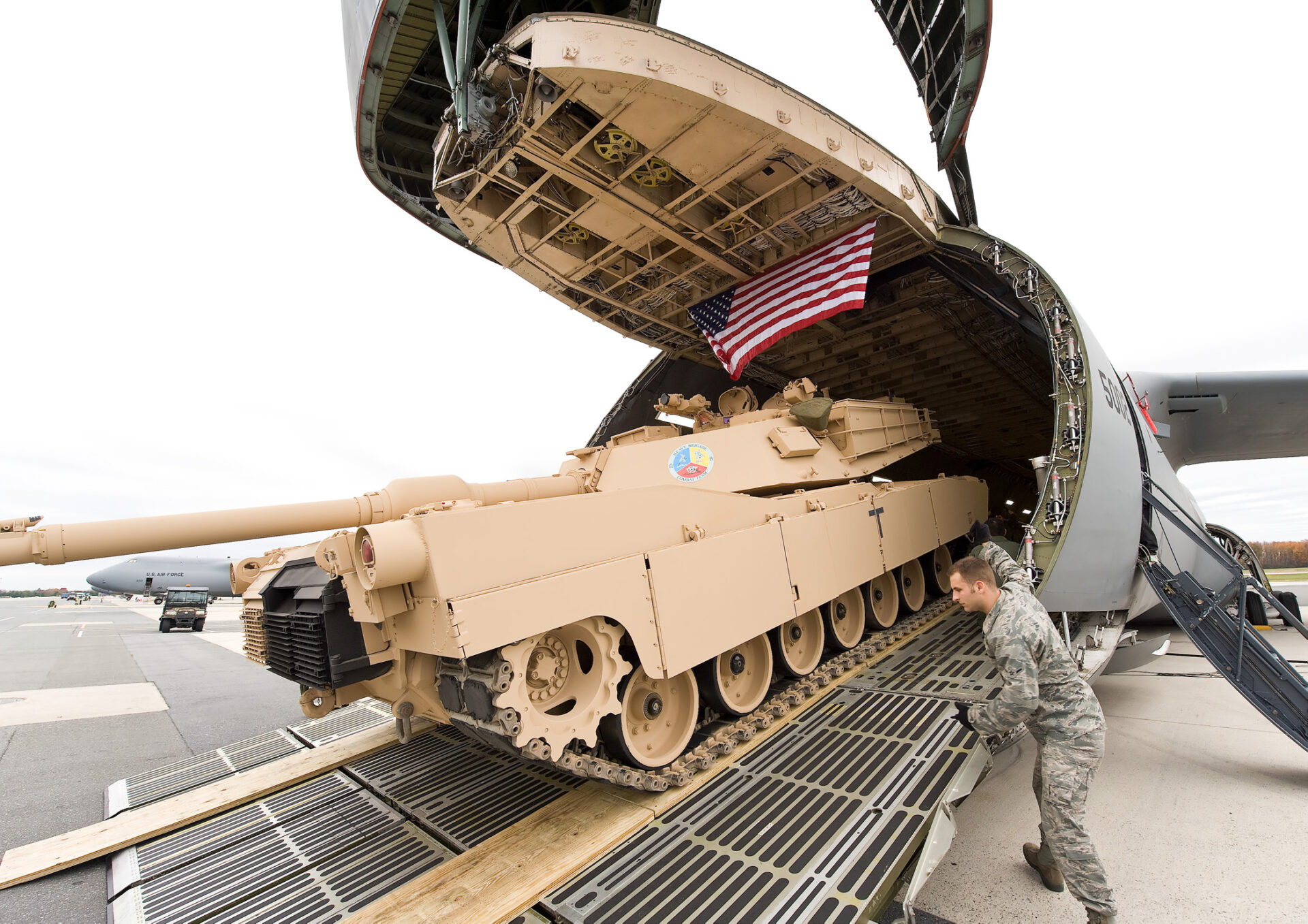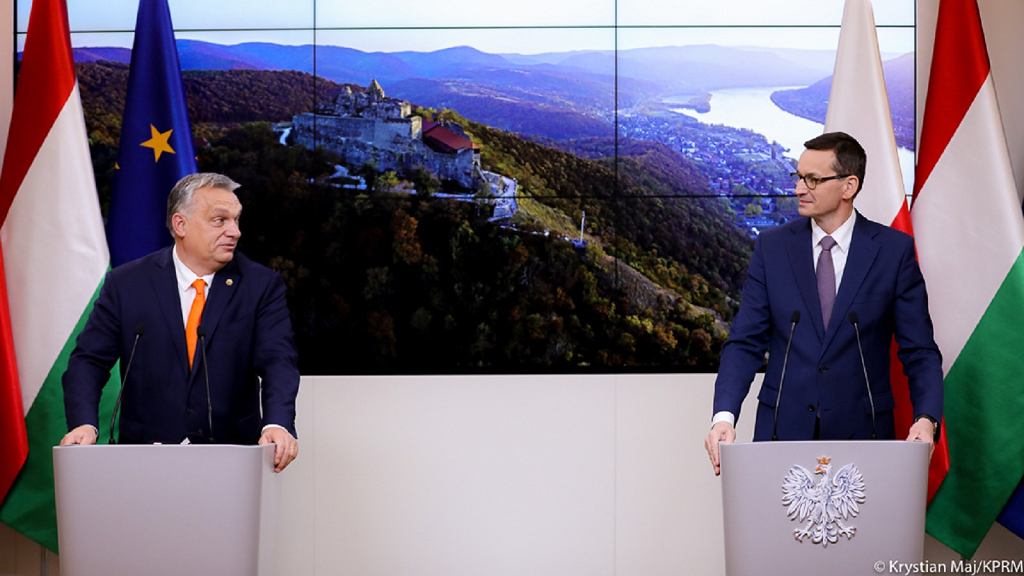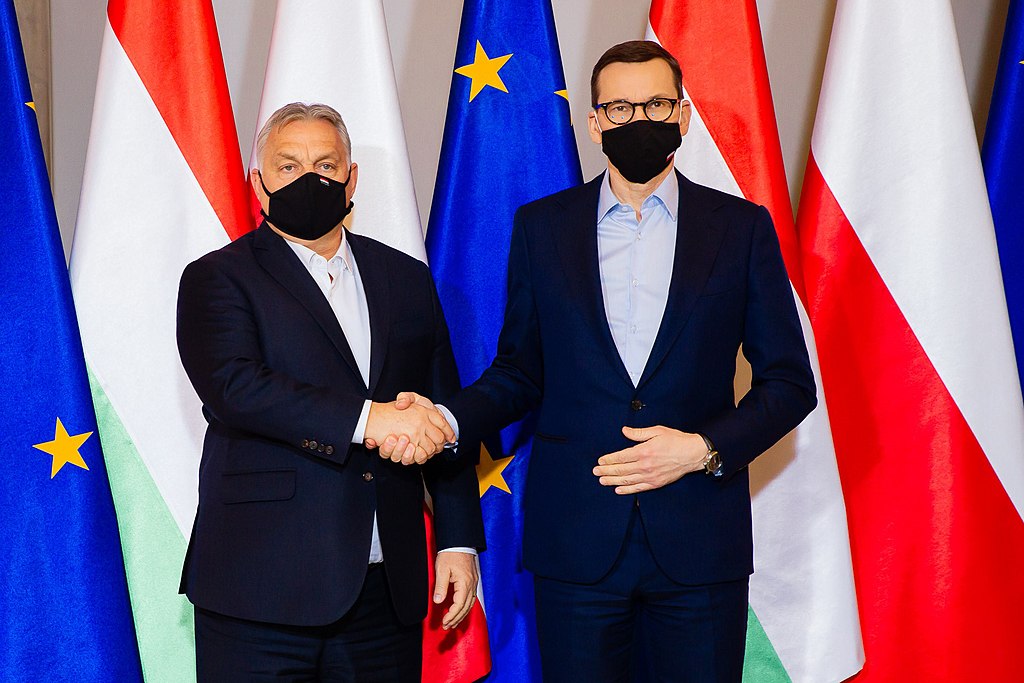Why America won’t let Russia off the hook

America cannot allow a Russian victory, not even the appearance of a Russian victory – and that would be any kind of truce, which, by the way, the Russians will not be ready to conclude for a long time to come, except for tactical time gain.
Rafał A. Ziemkiewicz
Developments in Ukraine depend on two factors: the degree of Russia’s determination to continue the war, and the West’s willingness to significantly increase its arms production – without which it will not be possible to provide sufficient logistical support to the fighting Ukraine, and which requires governments to provide arms factories with adequate guarantees.
Of course, there is still a third key factor: the determination of the Ukrainians themselves, but after everything that has befallen Ukraine’s civilian population on the part of the aggressor, and in view of the Russians’ undisguised strategic goal of destroying Ukraine as a separate nation and state entity, this determination can be most certain.
As for the willpower of the aggressor – the course of events has probably proved enough that as long as Russia is ruled by Putin, there is no question of Russia coming to terms with the existence of Ukraine. Putin is determined to have a prolonged confrontation, and he is convinced that he will win it – by the method once suggested by Vietnam’s communist leader Ho Shi Min: “If we manage to kill one American for every ten or even fifteen of our fallen, they will be the first to collapse.” Russia’s ruler assumes that his subjects will put up with anything, and if not, ruthless terror will prevent any sign of discontent; while the West’s resilience to even a slight reduction in living standards is rated very low by him.
PUTIN’S LIVE BULLET TRAPS
Putin will therefore continue to more or less overtly mobilize whomever he can into the army, mainly, however, prisoners, provincial residents, national minorities, and any other element of lower value to him, and send them to the front with symbolic, obsolete equipment. The satisfaction in the Polish media aroused by this last fact, taken as proof that Russia is chasing after the rest of its forces and will soon lose, proves a profound misunderstanding of the Putin mindset even by Poles – let alone residents of the “old EU” or the US.
These groups of “mobs”, slaughtered by the Ukrainians at Bucha or in other senseless offensives reminiscent of similar assaults from the Great Patriotic War (Rzev and Sychnevka), are merely living bullet traps whose task is to force the Ukrainians to fire their ammunition reserves. It would be a sheer waste to equip such bullet traps with decent weapons. And putting them into completely obsolete T-62 tanks, deconditioned after decades, makes sense, since such a tank is worth less than the modern missile that will be used to destroy it. It’s not even about monetary value, by the way, but that the Ukrainian army will eventually run out of these missiles. For the moment, modern equipment and full-fledged combat units are being kept and probably replenished in deep back-end.
This is not a desperate strategy, given that the West’s resources, after many years of reaping the “peace annuity” proclaimed after winning the Cold War, now appear to be running out – howitzer ammunition alone is reportedly used by Ukraine in a week as much as the British army has in stock, and the 18 Caesar howitzers donated by France accounted for half of its inventory!
After many years of restrictions on arms production, new production lines need to be set up to effectively help Ukraine. And this, as I have already mentioned, none of the armaments companies will risk without sufficiently generous government orders. These are huge sums of money, and adding to the already skyrocketing deficits of Western countries risks an outbreak of public discontent. This is what Putin is counting on. And it seems doubtful that any new leader who might succeed him after a hit or a palace coup will deviate from this thinking. Contrary to the “wishful thinking” manifested by many, who see in a change of power in the Kremlin a chance for peace, such a change is even to be feared – for Putin’s successor, although he will certainly be no better than Putin, will give the crowds of Western “useful idiots,” mixed with Russian agents who have been building up for decades, an occasion to announce a “reset” and the need for concessions, some new type of “Gorbomania.”
RUSSIA MUST NOT WIN
At the moment, there are two visions in the West of further developments. Germany, with France increasingly reduced to the role of its junior partner, steadfastly hopes that “things will be as they were again.” A scenario of the kind described above – any new face in the Kremlin, a new “Gorbomania” and the oft-rehearsed blackmail that any firmness against Russia weakens the position of the “reformer” and “democrat” under attack by the “hard-headed” internal opposition – is their dream. And this is certainly not going to change any time soon, as it stems from the very clearly defined interests not only of Germany, but also of the Eurocracy that depends on it. The whole project of “deepening integration” and building a federal “European state,” centrally managed from above the level of nation-states, all the accompanying ideological madness of “saving the planet” was based on close German-Russian raw material cooperation. Without cheap gas, cheap oil, and other cheap raw materials from Russia, the German economy loses its competitiveness, and without German dominance over the rest of European countries, the Lisbon Treaty structure is doomed to collapse. And for now, there is no other concept for Germany or the European Union.

Hence the strategy of incessant obstruction, procrastination, blocking, promising, and failing to deliver – all in the hope of turning the situation around, allowing one to declare that the evil has passed, and to start pressuring Ukraine to once again, as in 2014, trust in Western “guarantees.”
The Americans, however, are already quite different from a year ago, when they were willing, under certain conditions, to accept the Berlin-Moscow axis and surrender its dominance over Europe. Since January 2022, when Putin and Xi Jinping, in a joint statement, openly declared civilizational war on the West (read: America precisely), recognizing themselves as the leaders of the “non-Western” majority of the world’s countries, and even more so after the failure of the Russian “blitzkrieg” in Ukraine, the US has been determined to “de-denominate” Russia – although it considers such a course of events as desirable, so that large-scale chaos does not occur in Russia. The U.S. also seems convinced that, with gradual pressure, it will induce Germany to abandon the pipe dream of returning to its pre-war, neo-Bismarckian arrangement with Moscow, force it to gradually withdraw from cooperation with Russia, as well as with China. On this point, the Americans are certainly too optimistic. Sooner or later, they will find out that Germany is not suitable as their main partner in Europe – which will be excellent news for us. However, will it happen already this year – it’s hard to predict, it depends on too many factors.
On the other hand, I wouldn’t worry about predictions that the American will to weaken Russia “to the last Ukrainian” might be corrupted by internal problems and a change in power. True, in many circles of US Republicans one can now find references to isolationism, attacks on “too much” aid to Ukraine, which is supposed to reflect on the standard of living of citizens, compound inflation and other troubles of the country. This does not seem to be more than after-the-fact political demagoguery – as, by the way, the much weaker-than-expected results of the Republicans in the 2022 elections showed, hardly effective. In the long term, we should wish that the next elections (in the US they are held more often than in Europe, because the terms of delegates from different districts do not coincide) will bring more success for the Republicans, because under Biden’s administration there is a real danger that the US will try to make its aid to smaller countries conditional on meeting ideological conditions, especially of the kind expected by the LGBT community, in a similar way to what the European Union is currently doing to us or Hungary.
However, the US strategy will be decided not by electoral promises, but by the vital interests of the world’s greatest superpower. America cannot allow a Russian victory, not even the appearance of a Russian victory – and that would be any kind of truce, which, by the way, the Russians will not be ready to conclude for a long time to come, except for tactical time gain. Russia would simply lose face, and along with its face Taiwan, which would mean losing its status as a superpower, which no American politician can allow.
THE ROAD TO NOWHERE
All of this leads us to expect a long war in Ukraine and a deepening of all the processes started in the past year. One thing is certain beyond a shadow of a doubt: the world, no matter how much some people wanted it to be, will never be the same again as it was before 2022. In addition to all other reasons, also because the events of the past year conclusively proved that globalization was a road to nowhere. The West, by opening up to the eastern regimes economically, thought that the enrichment of these countries would entail a democratic transition. What happened was the opposite: the West, at the expense of job losses and growing social stratification, helped the regimes gain strength, acquire modern technology and expand military power. Awareness that this was a mistake has already become widespread – so the future is marked by actions such as Biden’s semiconductor export embargo, hitting the Chinese economy hard. In the coming year, we will see more similar events, and we will watch as tariff barriers around the world grow up and protectionism, which was widely shunned just a few years ago, returns to favor.
This article was published in December 2022 in “Do Rzeczy” magazine.




